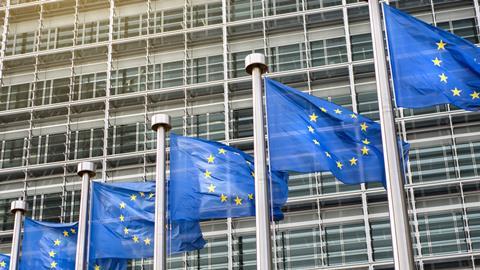The EU’s Sustainable Finance Disclosure Regulation (SFDR) came into force on 10 March, requiring real estate fund managers to implement transparency and reporting about the impact their investments have on the environment.

SFDR is the first piece of a rolling programme of legislation, part of a flagship EU policy inspired by the 2016 Paris Accord with the overarching aim of making the block climate-neutral by 2050.
Michael Schneider, managing director of German fund administrator Intreal, commented: ‘The objective of the Sustainable Finance Disclosure Regulation is to ensure transparency about the sustainability of a given investment for the investor. The idea is to brief investors ahead of their investment decision about the consequences of that investment for climate, social aspects and corporate governance.’
However, although all regulated market players now have to describe how they handle ESG - on their websites, in pre-contractual information and in annual and semi-annual reports - detailed implementation provisions have been delayed and are not expected to be applied until 2022.
Abigail Dean, head of sustainability at Nuveen Real Estate, told PropertyEU that nevertheless: ‘This marks the moment when the mainstreaming of ESG officially happens.’
According to a survey by EY, only 18% of more than 100 real estate firms it surveyed had an ESG fund that invests only in sustainable assets. But 81% of them expected investors to predominantly invest in green funds in future.
Commerz Real put out a statement to say that its Hausinvest open-ended fund, which at €16.5 bn in size is probably Europe’s biggest private co-mingled real estate vehicle, had already fulfilled the SFDR requirements for a so-called ‘Section 8’ product.
Mario Schüttauf, a Hausinvest fund manager, said: ‘On the basis of defined ESG criteria we take into account the entire life cycle of the properties in the fund. Thus during the scrutiny process prior to the acquisition of properties a sustainability due diligence procedure is conducted and in this respect a possible development path is defined for each individual property.’
Gabriele Volz, Commerz Real CEO, said the fund’s sustainable orientation made it ‘future-proof’. She said changes in society as well as in property markets, ‘make it necessary to continually amend the portfolio structure and the investment strategy’. An example is the intention to increase the fund’s 1,600 housing units to 10,000 with a major proportion to be subsidised.
Click here to read PropertyEU’s report on the main pieces of the legislation and anticipated time-table.










